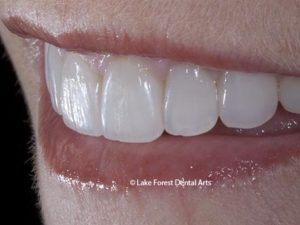
What Makes Enamel Strong
Tooth enamel is the thin, semi-translucent outer layer of your teeth. Though it’s thin and see-through, enamel is the most resilient substance that your body produces; it’s actually harder than steel, though more brittle. This is because enamel is composed of a mineral crystal called hydroxyapatite, a form of calcium phosphate – the same substance that gives bones their strength. To stay effectively strong, your teeth need an ample supply of these minerals, mainly through your diet. Teeth need to maintain their strength to last through a lifetime of biting and chewing. Eating vegetables is great including carrots.
When healthy and strong, enamel effectively protects the main structures of your teeth from harmful oral bacteria that could irritate them and lead to tooth decay. It also offers substantial protection from the force of your bite. It prevents your teeth from cracking or wearing down under the pressure.
Enemies of Enamel
Enamel “erosion” is the loss of enamel from exposure to acids. The following things can pose a threat to the strength and vitality of your enamel:
- Soft drinks, coffee, tea, or some fruit juices (citrus juices such as oranges, and grapefruits are the most highly acidic).
- Fruit drinks
- Dry mouth from certain medications
- A diet high in starches and sugars
- Acid reflux disease
- Bulimia, or frequent vomiting
- Certain aspirins and antihistamines
- Bruxism, or night-time tooth grinding and clenching
- Improper brushing technique, and stiff-bristled toothbrushes
While all of these things can be harmful to your enamel, oral bacteria are a destructive force that can never be fully eliminated. The bacteria living inside of your mouth feed off sugars and starches left behind in your mouth after eating. As bacteria grow and thrive in the sticky plaque that coats teeth and gums, they release corrosive acids that can slowly destroy enamel. You have probably seen the effects of their work if you’ve ever had a cavity filled. Since oral bacteria cannot be eliminated, the only resistance you have is to practice diligent oral hygiene. Make it a priority, and your enamel will thank you!
Signs and Symptoms of Tooth Enamel Loss
While you may not notice a slow loss of your strong tooth enamel layer, there are some signs that teeth are losing their protective barrier. These can include:
Changes in color: If your teeth start yellowing, it could be a sign that the outer layers of enamel have been eroded away. The yellow appearance isn’t necessarily from staining; the layer of tooth below is enamel is called “dentin,” and is a hard tissue that surrounds the inner pulp of the tooth. It’s color is naturally more yellow than enamel, and so yellowed teeth could be a sign that the layer of dentin is closer to the outer surface of the tooth.
Sensitivity: Increased sensitivity to fluctuating temperatures or to sweet foods may be an early sign of tooth enamel loss. As more enamel erodes, the level of sensitivity will also increase. This is because the inner tooth becomes more and more vulnerable to outside forces as its protective enamel layer dissolves.
Flattened or rough appearance: Teeth that appear short, or worn flat have lost enamel. Often, this type of enamel wear occurs in patients who suffer from bruxism. Teeth should have smooth outer surfaces. If a tooth appears rough or uneven, enamel loss could be the culprit.
Protecting Your Enamel
You should know that once tooth enamel is gone, it can’t be grown back. That’s why protecting and maintaining strong enamel is so important, to prevent as much erosion as possible. Here are our tips for proven enamel protection:
Keep acidic foods and drinks to a minimum.
This includes acidic drinks like coffee, soft drinks, or juices, as well as grapefruits, lemons, oranges, plums, grapes and other highly acidic fruits. When you do enjoy, be sure to drink a glass of water afterward, to dilute the acids left behind in your mouth. Better yet, use a straw to drink acidic drinks, to prevent acidic liquids from coming in contact with your teeth.
Focus on adding in low-acidic, neutral pH foods into your diet. These can include:
- Most fresh vegetables
- Soy and unsweetened dairy products
- Herbal teas
- Most whole grains
- Healthy fats like olive oil and avocados
Drink lots of water throughout the day and after every meal or snack.
This restores your mouth’s natural pH levels and reduces the amount of leftover starches that feed harmful oral bacteria. Drinking through a straw will reduce the amount of liquid that touches your teeth.
Choose a toothpaste with fluoride in it.
Fluoride is proven effective at strengthening teeth in children and adults, and can help your enamel better defend itself from acidic drinks and oral bacteria. Children and adults benefit from dental fluoride treatments. Protect weakened enamel by brushing and flossing. Brush your teeth by holding your soft bristle toothbrush at a 45 degree angle. Direct the bristles into the gumline.
Strengthen enamel with fluoride treatments or dental sealants.
A concentrated fluoride treatment or preventive sealant could be helpful if you are looking to prevent additional loss.
Talk to Your Dentist About Protecting Your Healthy Teeth
The best way to take care of your teeth is to preserve the strong enamel that naturally protects them. To learn more about enamel strengthening treatments available to you, schedule a consultation with Dr. James Fondriest by calling Lake Forest Dental Arts in Lake Forest, IL, at 847-234-0517.
